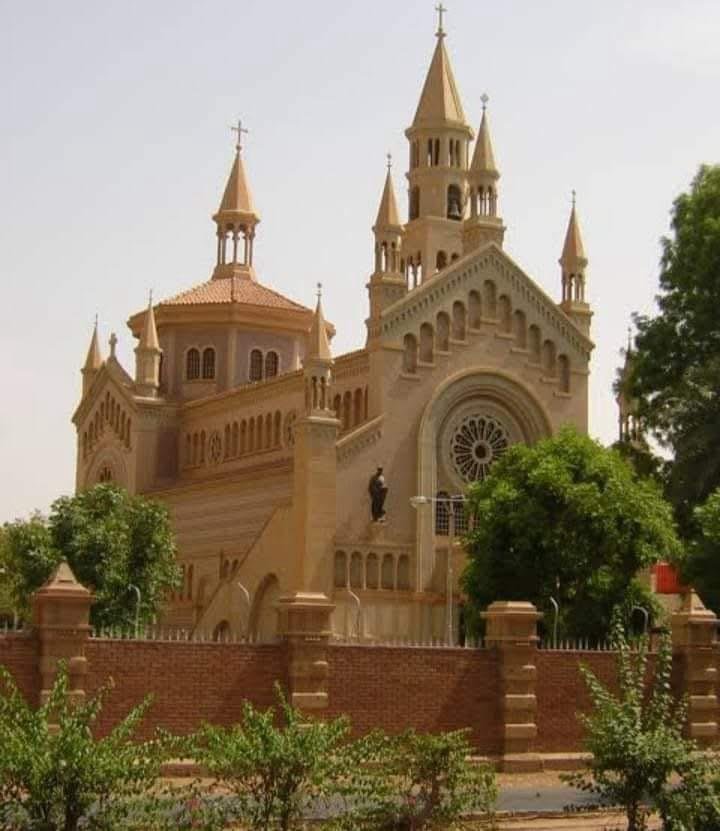SPT – The Political Editor
The majority of the Sudanese people eagerly await the day when their country follows in the footsteps of Jordan, Tunisia, and other nations in the region by banning Islamist political groups.
While the entire region has paid a heavy price due to Islamist politics, Sudan has suffered a double toll; losing its unity, security, stability, and prosperity. Sudan’s experience holds exceptional significance for several reasons, carrying crucial theoretical implications that the entire region should heed.
Among these reasons is the fact that Islamists seized power in Sudan as the first Sunni-majority country, ruling for over three decades and fully implementing their ideological project thereby exposing its true intellectual and practical nature.
The Islamists came to power through a military coup on June 30, 1989, and maintained their grip on authority for thirty years solely through brute force and violence.
A persistent myth, naively repeated by some, claims that political Islam groups turn extremist due to persecution , particularly during the Nasser era. Yet Sudan’s experience demolishes this fallacy. Unlike their counterparts in Egypt, Sudan’s Islamists suffered no such repression. Nevertheless, they seized power through violence and maintained it with grotesque brutality.
They detained and tortured hundreds of thousands in secret detention centers infamously known as “ghost houses.” Over 300,000 Sudanese were purged from civil and military service. Dissent against their totalitarian regime was met with unrestrained violence, unbound by legal, ethical, or humanitarian constraints. Their crimes grew so monstrous that the world’s highest judicial body, the International Criminal Court (ICC), charged them with war crimes, crimes against humanity, and genocide. Arrest warrants were issued for regime leader Omar al-Bashir, his Interior Minister Abdel Rahim Hussein, and State Minister Ahmed Haroun.
Despite the horrific crimes they committed, the Sudanese people treated them with remarkable tolerance when they succeeded in toppling the head of their regime through a popular revolution in April 2019. No one attacked them, nor did any Sudanese seek revenge for what they had done to the country and its citizens. Only a very few of their leaders were even brought to justice.
Yet they repaid the Sudanese people’s magnanimity with utter ingratitude. They exploited their ties to military and security apparatus leaders, particularly Army Commander General al-Burhan, to obstruct the civilian democratic transition. They incited and bribed tribal leaders to shut down the country’s main port, unleashed criminal gangs in the capital and other cities to loot and terrorize citizens, and then conspired with military and security leaders to stage a full-fledged coup against the transition on October 25, 2021, overthrowing the civilian government.
And when a political settlement loomed to restore the transitional path, they ignited war on April 15, 2023, to reclaim their absolute authority once more over the blood and bodies of the Sudanese people.
Thus, the fundamental conclusion is clear: Islamist groups are inherently bloodthirsty fascist entities in their core ideological foundations regardless of the political or social environment in which they operate.
This criminal, violent nature is epitomized by their relentlessly repeated slogan at every political rally: “Let the glory of religion rise, even if all blood is shed.”
As if the false glory of their religion can only be erected atop graves.
Another critical theoretical lesson from Sudan’s experience is that Islamist groups, no matter their claims, do not recognize the modern nation-state, international law, or global legitimacy. By their very nature, they are expansionist and interventionist.
Sudan’s Islamists turned Khartoum into a haven for outcasts and terrorists from across the globe, arming them, granting them Sudanese passports, and providing logistical support. They hosted Osama bin Laden and collaborated with him in the bombings of the U.S. embassies in Nairobi and Dar es Salaam (as confirmed by a U.S. judicial ruling). They conspired with Egypt’s Islamic Group in the attempted assassination of former President Hosni Mubarak in Addis Ababa in 1995. They even established a military manufacturing facility with Iran’s Revolutionary Guard, funneling weapons to conflicts across Africa and to every terrorist group in the region.
And because Islamists view fellow Islamists from any foreign nation as closer to them than any Sudanese citizen, particularly if that citizen follows a non-Islamic faith, their experiment culminated in the denial of the country’s religious, cultural, and ethnic pluralism. They established a dual apartheid system —religious and racial— prompting over 90% of South Sudan’s population to vote for secession from this state of religious and racial discrimination. Thus, as one Sudanese intellectual observed, this ideology, afflicted with the leprosy of denying diversity, dismembered the nation.
Islamists claim to embody purity, integrity, and angelic virtue on earth, asserting they need no human-devised mechanisms for oversight, accountability, or scrutiny. Their fraudulent pretenses birthed the most corrupt regime in Sudan’s modern history, evidenced by their perennial bottom, ranking on Transparency International’s financial integrity indices during their rule, and by the admissions of numerous leaders and cadres themselves.
They squandered over $100 billion in oil and gold revenues, resources that could have transformed Sudan into a Gulf like state, the very nations Islamists now rail against, despite their citizens enjoying development and welfare incomparable to the impoverishment and ruin inflicted on Sudan.
Another myth propagated by some naïve and oblivious individuals is that the corrupt and decadent Islamists will abandon their extremist agenda due to the luxurious lifestyle they lead. However, Sudan’s experience proves that the more they indulged in corruption, the more they became radical, repressive, and brutal towards the citizens. This is because their blatant corruption can only be protected through widespread repression. Moreover, their earthly privileges, which cannot be justified by any earthly logic, can only be justified by a false logic of the heavens, namely, by religious extremism.
Sudan’s experience has also shown that the original project of political Islam can only be forced into retreat when it faces an overwhelming force. Sudan’s Islamists only retreated from their expansionist, interventionist, and imperialist agenda when the international and regional communities took decisive action, imposing sanctions, isolating them, and supporting Sudanese forces opposing them. They retreated, albeit temporarily. But as soon as the international and regional communities grew negligent, and some regional states even swallowed their lies about an “sudden moderation,” they reverted to their bloodthirsty, expansionist, and interventionist agenda. This proves the Sudanese proverb: “A dog’s tail never straightens.” Wild dogs will only stop barking and biting when the stick is constantly in front of them.
As the Sudanese people have long suffered, and continue to endure, the assault of political Islam on their freedom, national unity, peace, and development, the threat of political Islam is not confined to Sudan alone. It threatens not just Sudan but all the countries in the region, particularly African nations, most of which are religiously and culturally diverse. The model of political Islam, with its expansionist interventions, threatens the stability and peace of Africa’s diverse nations.
Africa’s future depends on effectively and decisively combating the virus of political Islam, allowing for the spread and consolidation of true Islam: the Islam of mercy, tolerance, and acceptance of the other. Any nation that permits the virus of political Islam to expand within its borders or neighboring territories risks its security and unity.
It is astonishing that several of Sudan’s neighboring countries still fail to adequately recognize this grave threat.




